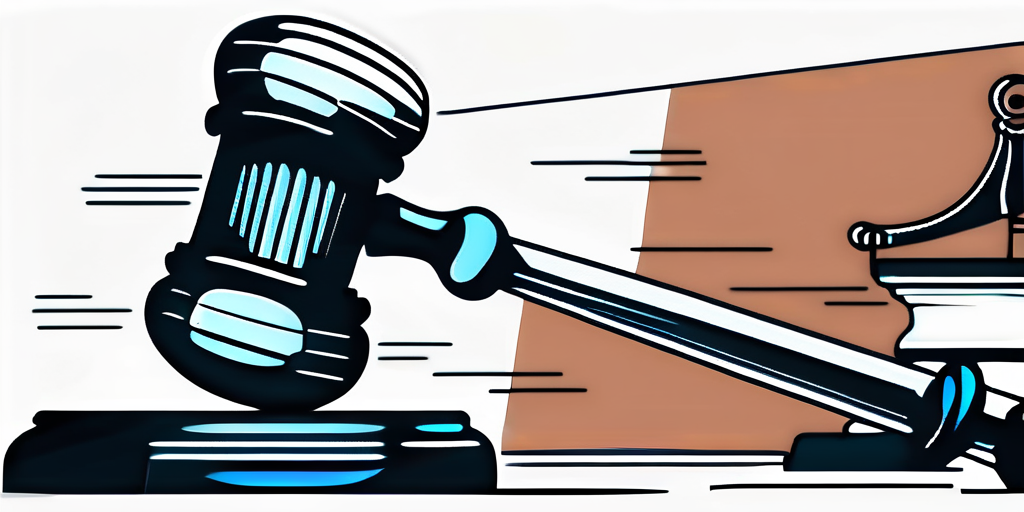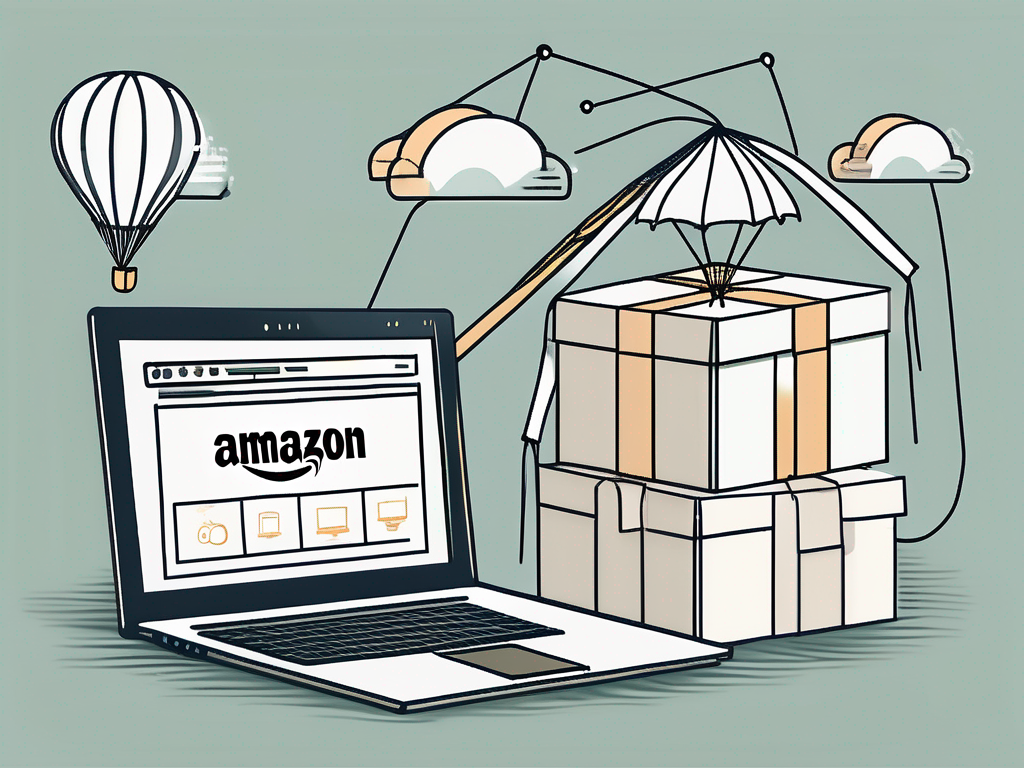Dropshipping has become increasingly popular in recent years as a business model for entrepreneurs looking to start their own e-commerce ventures. However, there has been some confusion and concern surrounding the legality of dropshipping. In this article, we will examine the concept of dropshipping, the legal aspects associated with it, common misconceptions, ethical considerations, and tips for navigating legal challenges in dropshipping.
Understanding the Concept of Dropshipping
Dropshipping is a retail fulfillment method where an online store doesn’t keep the products it sells in stock. Instead, when a store sells a product, it purchases the item from a third party and has it shipped directly to the customer. This means that the store owner never physically handles the product but acts as a middleman between the customer and the supplier.

Dropshipping has gained popularity due to its low overhead costs and the ability to start a business with minimal investment. However, before diving into the world of dropshipping, it’s important to understand its basics.
The Basics of Dropshipping
In a dropshipping business, the store owner lists products on their website without having them in stock. When an order is placed, the store owner forwards the order details to the supplier who then ships the product directly to the customer. The store owner makes a profit by charging a higher price than the cost price paid to the supplier.
This model eliminates the need for inventory management, warehousing, and shipping, making it an attractive option for entrepreneurs. By not having to invest in physical inventory, store owners can focus on marketing and customer service, allowing them to scale their business quickly.
One of the key advantages of dropshipping is the flexibility it offers. Store owners can easily add or remove products from their online store without worrying about excess inventory or outdated stock. This allows them to adapt to market trends and customer demands in real-time, ensuring a dynamic and responsive business.
How Does Dropshipping Work?
Dropshipping generally involves three key parties: the supplier, the store owner, and the customer. When a customer places an order on the store owner’s website, the store owner notifies the supplier who packages and ships the product directly to the customer. The store owner earns a profit by charging a markup on the product price.
While dropshipping offers convenience and flexibility, it’s crucial to be aware of the legal aspects related to this business model. Store owners must ensure they have proper agreements in place with their suppliers to avoid any potential disputes. They should also comply with consumer protection laws and clearly communicate shipping times and return policies to their customers.
Additionally, store owners need to carefully select reliable suppliers who can consistently deliver high-quality products. Building strong relationships with suppliers is essential to ensure smooth operations and customer satisfaction.
In conclusion, dropshipping is a business model that allows entrepreneurs to start an online store without the need for upfront inventory investment. It offers flexibility, scalability, and low overhead costs. However, it’s important to understand the basics and legal aspects of dropshipping to build a successful and compliant business.
Legal Aspects of Dropshipping
While dropshipping is a legitimate business model, it is important to address the legal obligations and requirements associated with it. Let’s explore some key legal considerations for dropshippers.

Dropshipping and Business Licenses
Before starting a dropshipping business, it is necessary to determine the legal requirements for operating a business in your specific jurisdiction. This may include obtaining the appropriate licenses and permits. Failure to comply with these legal obligations could result in penalties or even shutting down your business.
When it comes to business licenses, the specific requirements can vary depending on your location and the nature of your dropshipping business. Some jurisdictions may require a general business license, while others may have specific licenses for online businesses. It is important to research and understand the licensing requirements in your area to ensure compliance.
Legal Obligations for Dropshippers
As a dropshipper, you have certain legal obligations towards your customers. These include providing accurate product descriptions, ensuring the products sold comply with regulations, and processing returns and refunds as per consumer protection laws. It is important to stay informed about the legal requirements in order to protect both your business and your customers.
One important aspect of dropshipping is ensuring that the product descriptions are accurate and truthful. Misleading or false product descriptions can lead to dissatisfied customers and potential legal issues. It is crucial to provide detailed and accurate information about the products you are selling, including their features, specifications, and any limitations or restrictions.
Additionally, dropshippers must ensure that the products they sell comply with all relevant regulations and safety standards. This includes verifying that the products meet any labeling, packaging, or testing requirements, as well as any industry-specific regulations. Failure to comply with these regulations can not only result in legal consequences but can also harm your reputation and customer trust.
Common Misconceptions about Dropshipping Legality
Despite the legality of dropshipping, there are common misconceptions that have led to confusion and concerns. Let’s debunk a couple of these myths.
Dropshipping and Copyright Infringement
One common misconception is that dropshipping inherently involves copyright infringement. It’s important to note that dropshipping itself is not illegal. However, using copyrighted materials without proper authorization, such as selling counterfeit products, is a violation of intellectual property rights and can lead to legal consequences.
The Myth of Dropshipping Illegality
Another common myth is that all dropshipping activities are illegal. In fact, dropshipping is a legitimate business model as long as it complies with the relevant laws and regulations. It’s important for potential dropshippers to separate fact from fiction to make informed decisions about their business ventures.
Now that we have debunked these misconceptions, let’s delve deeper into the legal aspects of dropshipping. Understanding the legal framework surrounding this business model is crucial for entrepreneurs who want to embark on this venture.
One important legal consideration in dropshipping is consumer protection. Dropshippers must ensure that they provide accurate and transparent information about their products to customers. This includes disclosing any potential risks or limitations associated with the products being sold. By doing so, dropshippers can build trust with their customers and avoid any legal disputes.
Furthermore, dropshippers need to be aware of the laws and regulations regarding product safety and compliance. Depending on the nature of the products being sold, there may be specific requirements that need to be met to ensure consumer safety. For example, certain products may need to undergo testing or obtain certifications before they can be legally sold. By staying informed about these regulations, dropshippers can ensure that they are operating within the boundaries of the law.
Ethical Considerations in Dropshipping
While dropshipping may be legal, there are also ethical considerations to keep in mind. Building a sustainable and reputable business requires transparency and ethical sourcing practices.
When it comes to dropshipping, transparency is key. Being transparent with customers about the dropshipping model and the source of the products is crucial. It builds trust and allows customers to make informed purchasing decisions. Imagine a scenario where a customer purchases a product, expecting it to arrive within a week, only to find out later that it will take a month because it is being shipped directly from the supplier. This lack of transparency can lead to customer dissatisfaction and a tarnished reputation.
Transparency in Dropshipping
Clearly communicate shipping times, product quality, and any potential import duties or taxes to avoid any customer dissatisfaction. By setting realistic expectations and providing accurate information, you can ensure that your customers are well-informed and can make decisions that align with their needs and preferences. Additionally, consider offering tracking numbers for shipments so that customers can easily monitor the progress of their orders. This level of transparency not only enhances the customer experience but also demonstrates your commitment to integrity and accountability.
Moreover, transparency should extend beyond the customer-seller relationship. It is important to maintain open and honest communication with your suppliers as well. Establishing clear expectations and maintaining regular communication can help prevent misunderstandings and ensure a smooth dropshipping process. By fostering strong relationships with your suppliers, you can work together to address any issues that may arise and maintain a mutually beneficial partnership.
Ethical Sourcing and Dropshipping
Ensuring the products you sell are ethically sourced is another important ethical consideration in dropshipping. Conducting due diligence to verify that the suppliers you work with adhere to ethical standards regarding labor practices, environmental impact, and product quality is essential. By doing so, you not only protect your reputation but also contribute to a more sustainable and responsible supply chain.
Consider partnering with suppliers who prioritize fair labor practices, such as paying workers fair wages and providing safe working conditions. Additionally, look for suppliers who are committed to minimizing their environmental impact, whether through sustainable packaging choices or responsible waste management practices. By aligning your business with ethical suppliers, you can ensure that your dropshipping venture supports social and environmental well-being.
Furthermore, conducting regular audits and inspections of your suppliers’ facilities can provide additional assurance that ethical standards are being met. This proactive approach demonstrates your commitment to responsible sourcing and can help identify and address any potential issues before they escalate.
In conclusion, while dropshipping offers numerous benefits, it is important to consider the ethical implications of this business model. By prioritizing transparency and ethical sourcing practices, you can build a sustainable and reputable dropshipping business that not only benefits your customers but also contributes to a more ethical and responsible global marketplace.
Navigating Legal Challenges in Dropshipping
Running a dropshipping business comes with its own set of legal challenges. Here are some tips to help you navigate those challenges successfully.

Legal Tips for Dropshippers
Seek legal advice: Consulting with a lawyer who specializes in e-commerce and dropshipping can help you understand the legal landscape and ensure compliance with the applicable laws in your jurisdiction.
Stay updated: Laws and regulations regarding e-commerce and dropshipping can vary across different regions and change over time. Continuously staying informed about legal developments and updates will help you adapt your business practices accordingly.
Avoiding Legal Pitfalls in Dropshipping
Some common legal pitfalls to avoid include intellectual property infringement, deceptive advertising practices, and non-compliance with consumer protection laws. Familiarize yourself with the relevant regulations and take proactive steps to prevent legal issues from arising.
In conclusion, dropshipping is a legal business model when conducted within the boundaries of the law. Understanding the concept, complying with legal obligations, debunking misconceptions, embracing ethical considerations, and navigating legal challenges will help dropshippers establish successful and law-abiding businesses.

